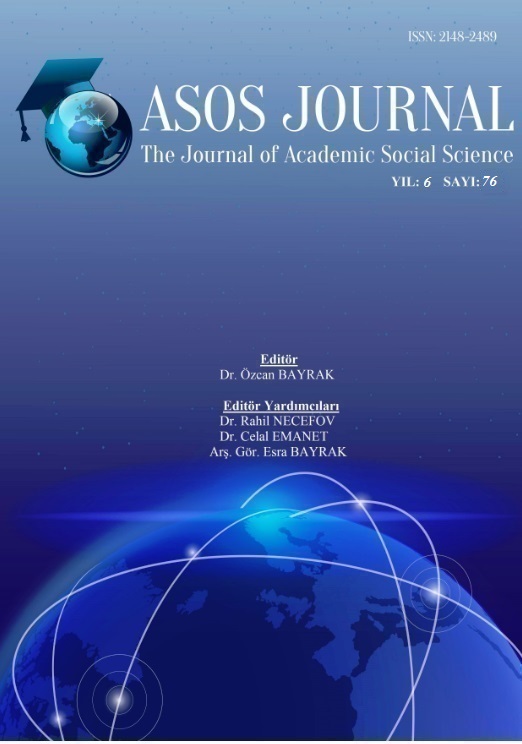Author :
Abstract
Bu makale, Naki Tezel'in Türk Masalları başlıklı masal koleksiyonundaki seçilmiş masallarda Arap karakterini psikanalitik açıdan incelemektedir. Makale, Arap karakterini, C. Fred Alford'un kötülük kavramı teorilerinin ışığı altında analiz etmektedir. Osmanlı İmparatorluğu Döneminde yaşayan Afrikalı kölelerin sosyo-ekonomik durumları gözönüne alındığında, masallarda yer alan çoğu Arap karakterin bir otoriteye bağlı olduğu ve haksızlığa uğradığı görülmektedir. Bu çalışma için seçilen masallarda, bu edilgen halin etkene, aşağılık hissinin üstünlüğe, nesne durumunun özne durumuna dönüşme çabası açıkça farkedilmektedir. Bu masallarda, mağdur koşulların değişmesi için Arap karakterinin kötülüğe başvurduğunu görebiliriz. Bu yüzden, Arap karakterinin kötülük amacını, sosyal/varoluşsal yükünden kurtulup rahatlığa kavuşma ve savunmasızlığını ortadan kaldırma arzusuyla ilişkilendirebiliriz.
Keywords
Abstract
This article analyses the Arab character in the selected tales of Naki Tezel's collection titled as Türk Masalları through a psychoanalytical approach. The study aims to examine the character in the lights of C. Fred Alford's theories on the concept of evil. It is argued that when the socio-economic conditions of the African slaves during the Ottoman Empire are taken into consideration, it is clear to see that most of these African characters are victimised and subject to an authority. It can be noticed that in these selected tales, there is an attempt of turning this passivity into activity, inferiority into superiority and the state of being an object into being a subject. The tendency to transform his/her downtrodden condition into a better one leads the Arab to commit evil deeds in the tales in question. Therefore, the aim of the Arab can be intimately connected with the desire to relieve from confronting the social/existential burden and to eradicate his/her vulnerability.
